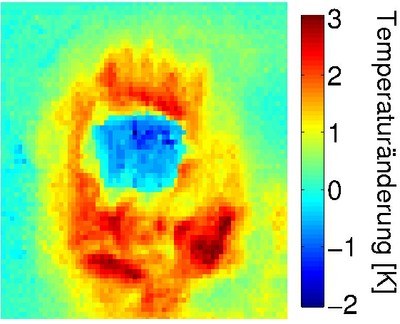Our group conducts experiments on the following topics: thermodynamics of light, as Bose-Einstein condensation of photons in microcavities, and the statistics and dynamics of photons in tailored potentials. We also investigate topology and quantum simulation with ultracold atomic gases.
We are always looking for Bachelor, Master, PhD students, and postdocs. For more information, see here.
Latest news
Julian Schmitt has been appointed full professor at the Ruprecht-Karls University of Heidelberg
Julian will join the Kirchhoff-Institute for Physics as of 1st of January 2025 and the team members and labs will join the new laboratories in the next months of 2025. At Heidelberg, his experimental research group “Optical Quantum Systems” (optiQS) will explore emergent phenomena in quantum fluids of light, topological photonics and physical computation using open light-matter systems.
Kiran's paper on the 1d-2D crossover is published
It is long known that the dimensionality of a system has great influence on the laws of physics. In one dimension, the Hohenberg-Mermin-Wagner theorem predicts that, under some constraints, long-range order cannot be established in one dimension, as thermal fluctuations drive the system to an unordered situation. But what happens when going from two to one dimension? We have studied this crossover together with colleagues from the RPTU Kaiserslautern-Landau in a quantum gas of light.
Photons condense into a ring-like ground state
Photons confined in a potential with tunnel-coupled minima in a ring shape can populate the hybridized states of that ring. The ground state in such a ring is the symmetric superposition of the eigenstates of the individual wells, a smeared-out ringlike state. Using cooling enabled by thermal contact to a dye solution, we were able to coll directly into this ground state, and verify the phase coherence of the superposition state. The results have been published in Physical Review Letters.
Ultracold Rubidium atoms in lattices simulate strongly coupled systems
The quantum Rabi model describes the coupling of a two-level system to a bosonic mode, one prominent example is an atom coupled to a light field. When the coupling gets stronger than the relevant energy scales of the atom and the light field new effects are expected, for example a collapse ad revival of the initial state. In optical systems, however, this regime is not achievable, but cold atoms can simulate this regime. This proposal, conceived together with our theory colleagues from Bilbao, has been tested successfully in our lab.
Our research

© H. Brammer/U Bonn
Erbium Experiment:
Topology with Ultracold Atoms

© AG Weitz
Rubidium Experiment:
Quantum Simulation

© U. Vogl / AG Weitz
Ultradense Gases: Laser Cooling & Spectroscopy

© AG Weitz
Spectroscopy of High Pressure Gases:
Novel Light Sources in the VUV

© T. Damm/U Bonn
Photon Bose-Einstein-Condensation: Statistical Physics

© C. Kurtscheid/U Bonn

